Empowering Fishermen:
Penn State and University of Cape Verde’s Collaborative Project for Climate-Resilient Communities
Pennsylvania State University (Penn State) and the University of Cape Verde (UniCV) are revolutionizing the way fishermen in Cape Verde combat the challenges posed by climate change. Through their collaborative project, ELEVAR2030, these institutions, supported by the U.S.-Cape Verde University Partnerships Initiative (USCVUP), are deploying low-cost coastal weather stations to empower local fishing communities. Led by Professor Gregory Jenkins, Director of the Alliance for Education, Science, Engineering, and Design with Africa (AESEDA), and Professor Sandra Freire, Vice-Rector of UniCV, this interdisciplinary effort aims to enhance safety, provide real-time weather information, and secure sustainable livelihoods for Cape Verdean fishermen.
Number of Sustainable Goals Project Aligns With
Organizations Involved
Researchers and Students Involved
Targeted no. of Weather Stations
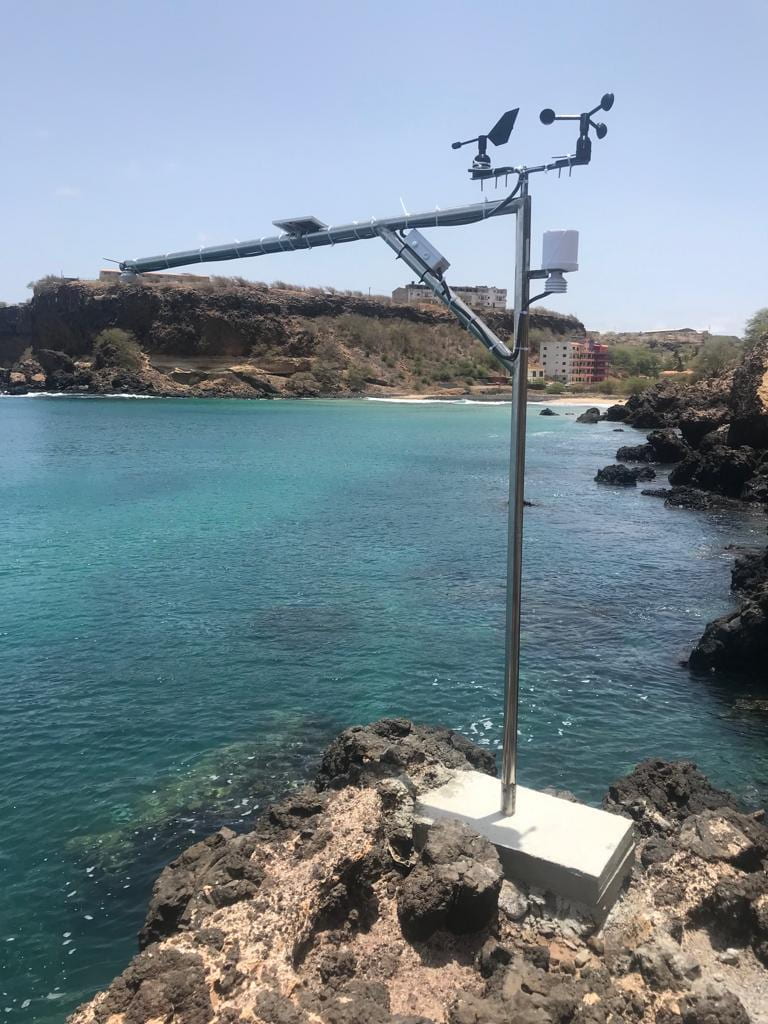
Addressing the Need for Reliable Weather Information:
Cape Verde, an arid archipelago in West Africa, relies heavily on the Atlantic Ocean as a vital source of food and income. Fishermen in Cape Verde’s impoverished communities have long relied on their experience and instincts to predict sea conditions. However, climate change has introduced greater unpredictability, leading to increased risks and jeopardizing their safety. Recognizing this urgent need, Professor Mare Sarr of Penn State’s School of International Affairs and AESEDA’s Co-director, emphasized, “Fishermen have little information about the weather and how sea conditions might change while at sea. This is extremely risky and clearly far from ideal.”
Incorporating Local Knowledge, Local Design, and Low Costs:
To ensure sustainability and maximize effectiveness, the ELEVAR2030 project prioritizes three crucial elements: local knowledge, local design, and low costs. Under the guidance of Professor Jenkins from Penn State and Professor Mateus Andrade from UniCV, the project engaged UniCV students Fred Centino and Edson Moreno, who took the lead in designing and building the low-cost weather stations. Leveraging cutting-edge 3D printing technology, these weather stations feature essential tools such as rain gauges, tide gauges, thermometers, and wind speed and wind direction indicators. By providing vital information, these instruments empower fishermen to make informed decisions that safeguard their lives and livelihoods.
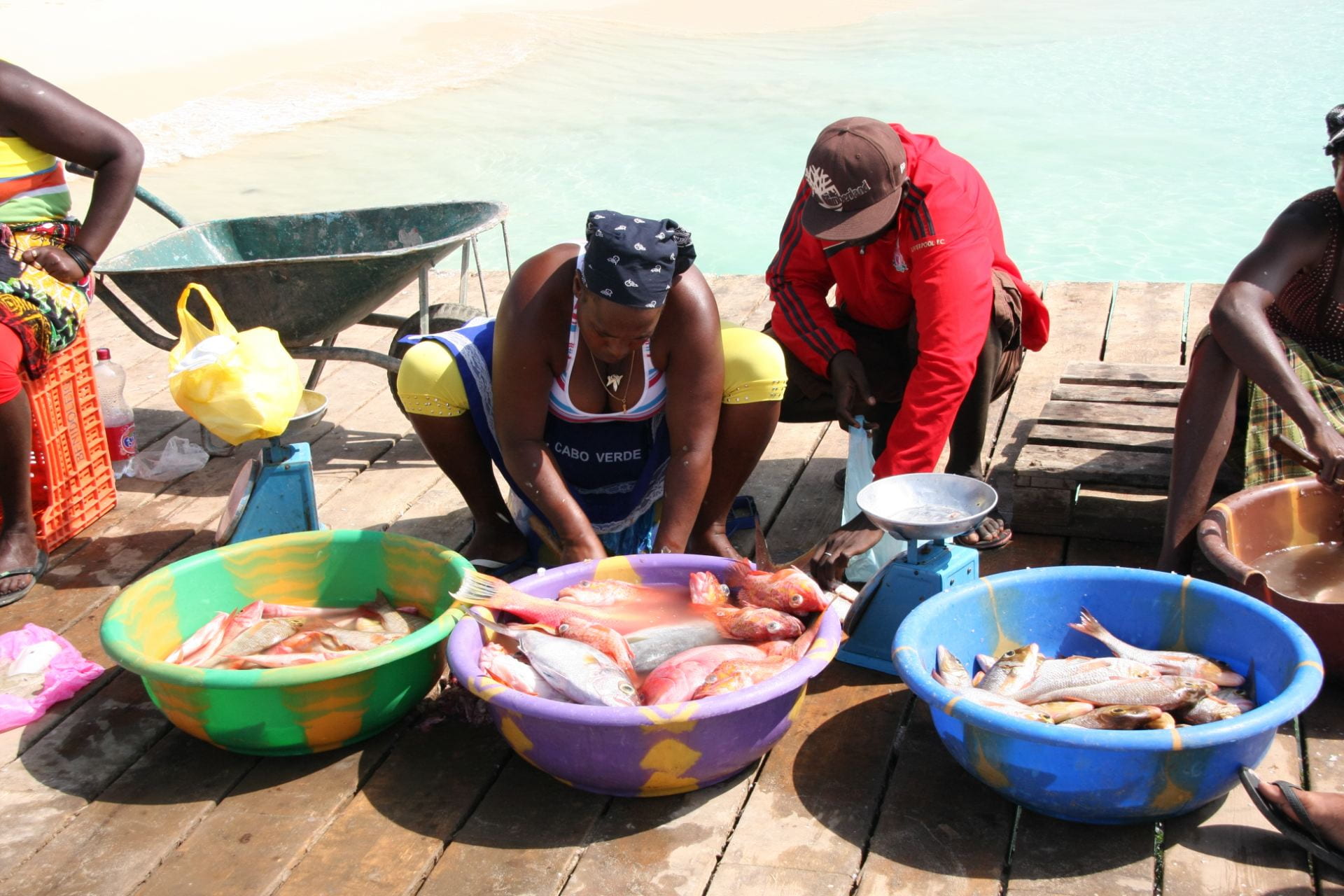
Interdisciplinary Collaboration and Student Involvement:
The ELEVAR2030 project embodies the power of interdisciplinary collaboration and the involvement of students from diverse fields. AESEDA, led by Professor Jenkins, fosters partnerships that bridge engineering, meteorology, atmospheric science, and international affairs, allowing students to contribute their unique skills and perspectives. UniCV engineering students played a crucial role, applying their classroom knowledge to design and construct the weather stations. Their proactive engagement exemplifies the practical application of academic learning and highlights the potential impact of student-led initiatives.
Making an Impact and Future Endeavors:
The ELEVAR2030 project not only addresses the immediate challenges faced by Cape Verdean fishermen but also aligns with 8 of the United Nations’ 2030 Sustainable Development Goals, including innovation, poverty reduction, and climate action. By providing real-time weather information, the weather stations enhance safety, bolster food security, and contribute to the livelihoods of fishing communities. Looking ahead, the project intends to deploy an additional 25 weather stations across the Cape Verde islands. These efforts will expand hurricane preparedness, monitor air quality, and develop mobile applications and websites, enabling fishers and the public to access critical weather and air quality data easily.
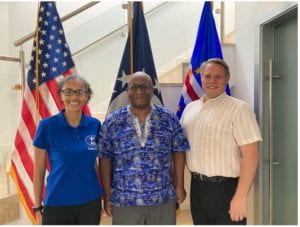
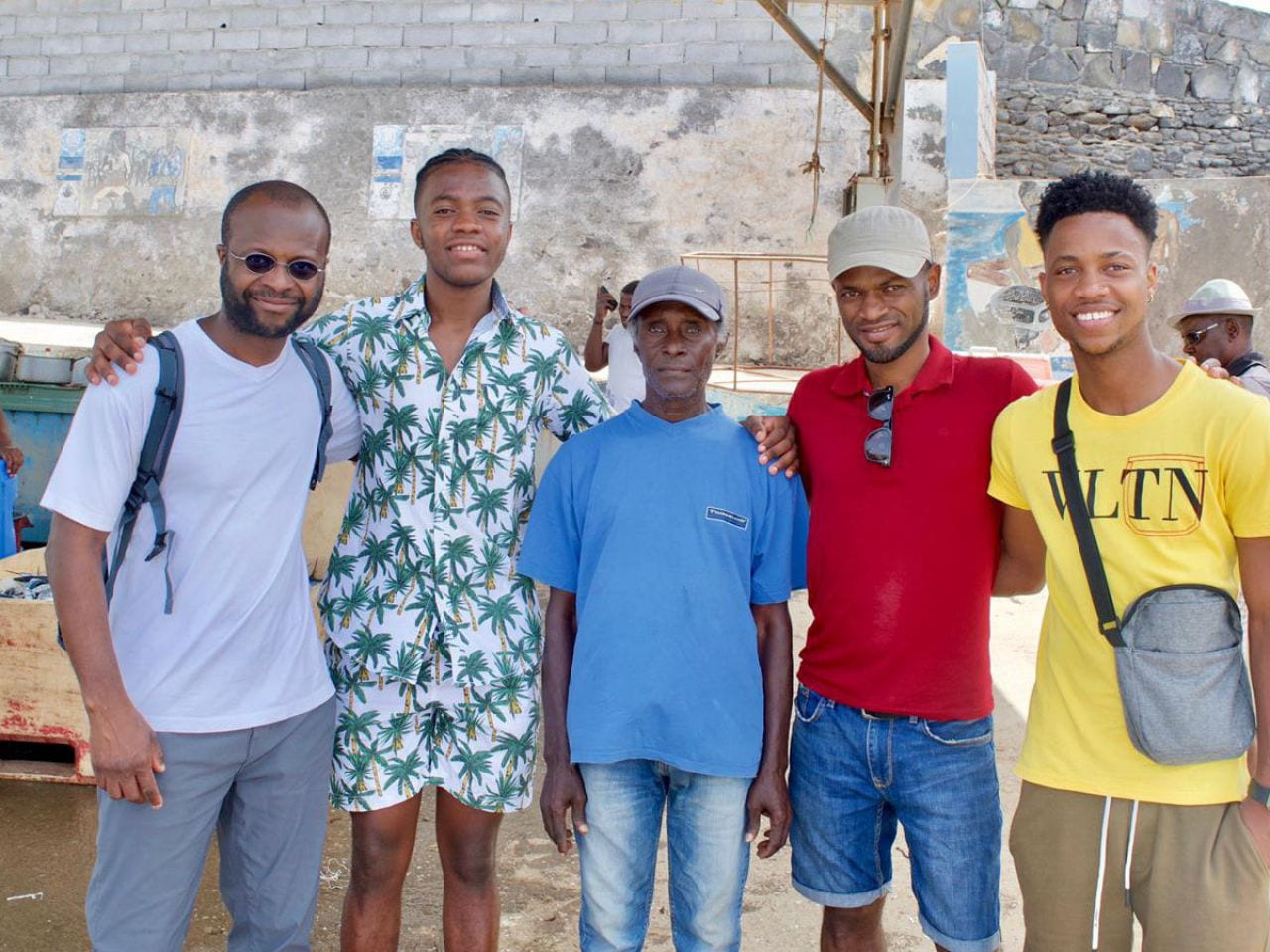
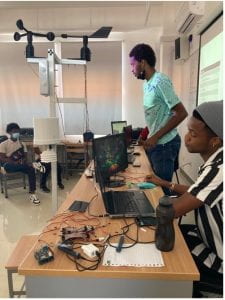
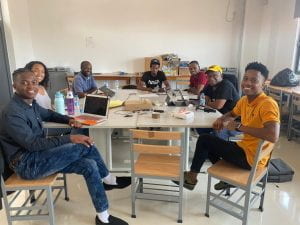
Recognizing Key Contributors from AESEDA: Gregory Jenkins and Mare Sarr:
The Alliance for Education, Science, Engineering, and Design with Africa (AESEDA), a driving force behind the ELEVAR2030 project, epitomizes the commitment of Penn State and UniCV to sustainable development and global collaboration. Professor Gregory Jenkins, renowned for his expertise in meteorology and atmospheric science, leads the project from Penn State. His dedication to the safety and well-being of fishing communities is instrumental in driving impactful change. Professor Mare Sarr, Co-director of AESEDA, lends his expertise in policy and international affairs, ensuring the project’s interdisciplinary approach aligns with global development goals.
The groundbreaking collaboration between Penn State and UniCV in the ELEVAR2030 project showcases the transformative potential of interdisciplinary research, student engagement, and innovative solutions. By empowering Cape Verdean fishermen with real-time weather information through low-cost coastal weather stations, this partnership is enhancing safety, promoting sustainability, and securing livelihoods. AESEDA, led by Professor Gregory Jenkins and Professor Mare Sarr, epitomizes the spirit of impactful interdisciplinary research, inspiring future generations to address climate change challenges head-on. Together, Penn State and UniCV are shaping a brighter and more resilient future for Cape Verdean fishing communities.